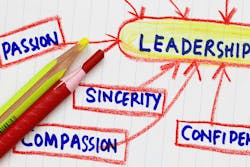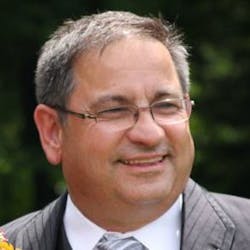General George S. Patton said, “Never tell someone how to do something. Tell them what to do and they will surprise you with their ingenuity.” His idea of empowering people has resonated with me. Whether as a temporary foreman at one steel company, a full-time foreman and warehouse manager at another, a manager in a private business or a volunteer leader working with high school students, I have seen General Patton’s theory work time and time again.
It's also why I have come to believe in a concept called servant leadership.
During my first real leadership role, I filled in for the foreman during his absences at a steel company. I soon noticed I had a knack for assisting the crew by adequately planning downtime and providing detailed support for them. I also noticed that they responded positively at my willingness to serve them during their performance of their jobs.
A few years later, I found myself in charge of a crew of millwrights. This crew consisted of capable, hardworking men who also had serious motivation issues. Their attitudes were bad and absenteeism was prevalent. When I sat the crew down for a heart-to-heart talk, I learned that their complaints and reasons for absenteeism were as varied as their ages. My resolution to their problems included a simple concept: communication. If they would tell me why they couldn’t work, I could adjust their shifts and provide work for them to complete. It was a win-win situation. Within a year, we had a cohesive and functioning team. The respect grew between all of us.
After I accepted new positions and my career changed, I worked with new groups of workers. Again, I offered respect and support, and again, I jumped in to help where I could. Once again, I was met with success.
These were professional positions, but my real test of my leadership theories took place when I volunteered with my daughter's high school band. Together, the band members and I embarked on a long, non-stop bus ride from Minnesota to Washington, DC. When that trip was over, I had 160 new friends. In the years that followed, I asked a few of the students why I seemed to have earned their respect so quickly and why they had developed a sincere affection for me. The answers were almost always the same: I talked to them, not at them. I actually listened to them. I treated them like young adults, always being willing to allow them to act more mature and never trying to be an adult who lowered myself to their level to try to get them to like me. I tried to help them rather than boss them around.
Don't get me wrong, I had more fun than they did and I was often goofy, but I knew well the line between goofiness and irresponsibility. The question that I asked myself often, "Am I making inroads with them?” was answered when a student chose to write about me for a class assignment. She wrote, “Mr. Yeley is a responsible adult who has not forgotten what it is like to be a teenager.”
I'm sharing this not because I think I’m special, but because I realized that all these students and workers are in fact valuable. What the teens didn’t know was there was more to my relationship with them than fun. I tried to model responsibility. What the students and subordinates have taught me is that real leadership requires a desire to serve and an ability to communicate positive affirmation.
So whether it’s the saltiest old millwright or a young tuba player, everyone responds to sincere appreciation spoken appropriately, respect for the effort they contribute to the organization, and a leader who will serve rather than boss. When these ingredients are properly blended, the results will astound even the most skeptical critic and bring tears to the eyes of a sentimental old guy.
I will never claim to be a great leader, but I am wise enough to recognize great potential in the people I’ve lead over the course of many years, miles and venues.


